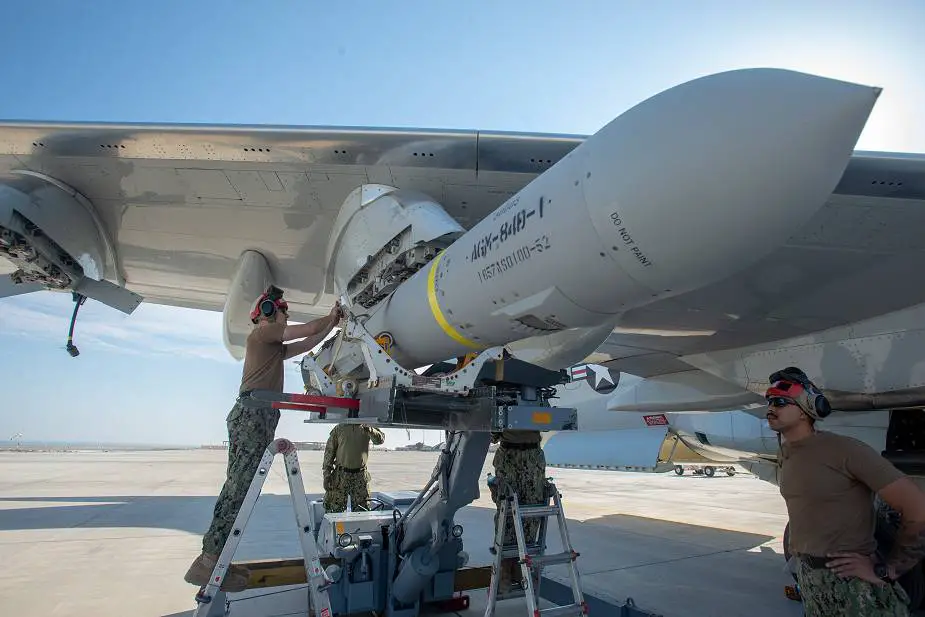Breaking news
US Navy P-8A Poseidon aircraft has successfully launched Harpoon missiles for the first time in Europe.
According to information released by the U.S. Navy, a P-8A Poseidon maritime patrol aircraft of the U.S. Navy has successfully launched two Air to Surface Missile (AGM-84D) Harpoons against a target barge off the coast of Norway during naval exercise At-Sea Demo/Formidable Shield 2021. This marked the first use of Harpoon missiles by P-8A Poseidon in the European theater.
Follow Navy Recognition on Google News at this link
 U.S. Navy sailors load an AGM-84 Harpoon missile onto a P-8A Poseidon naval aircraft. (Picture source U.S. Navy)
U.S. Navy sailors load an AGM-84 Harpoon missile onto a P-8A Poseidon naval aircraft. (Picture source U.S. Navy)
The test launched was conducted by the Patrol Squadron Four (VP-4), a U.S. Navy land-based patrol squadron based at the Naval Air Station Whidbey Island, Oak Harbor, Washington, which is tasked to undertake maritime patrol, anti-submarine warfare (ASW), and intelligence, surveillance and reconnaissance (ISR) missions using the Boeing P-8A Poseidon naval aircraft.
The Boeing P-8A is truly a multi-mission maritime patrol aircraft designed to conduct anti-submarine warfare, anti-surface warfare, intelligence, surveillance and reconnaissance, and search and rescue missions. The aircraft was developed and is produced by American company Boeing Defense, Space & Security, based on a modified 737-800ERX two jet engines civilian aircraft.
The P-8A can fly higher (up to 41,000 ft) and get to the fight faster (490 knots). Shorter transit times reduce the size of the Area of Probability when searching for submarines, surface vessels, or search and rescue survivors. P-8 is also designed for low altitude missions and has already proven its abilities supporting humanitarian and search and rescue missions.
The P-8A can be armed with torpedoes, Harpoon anti-ship missiles, and other weapons. The Harpoon also called AGM-84 called is an all-weather, over-the-horizon, anti-ship missile, developed and manufactured by McDonnell Douglas (now Boeing Defense, Space & Security). It gives the Poseidon the ability to challenge enemy naval movements, either in support of offensive operations or in order to defend friendly forces.



























